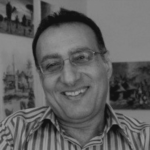In 2015, Russian Deputy Prime Minister Dmitry Rogozin posted on Twitter two pictures of Vladimir Putin and former US President Barack Obama side by side. Putin was holding a tiger, while Obama appeared to be carrying a small and fluffy dog. “We have different values, different allies,” he wrote underneath.
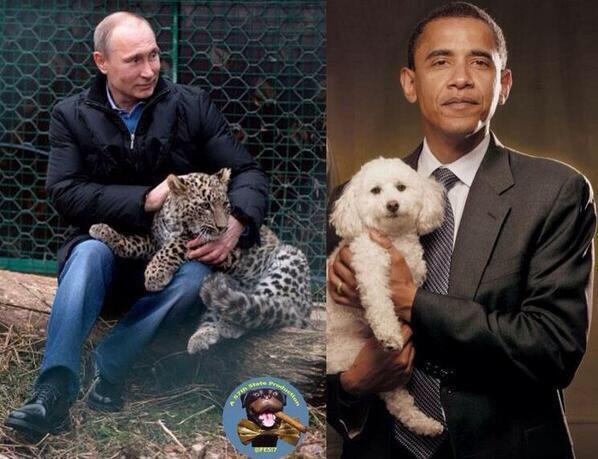

The tweet drew the attention of a team of researchers from St. John’s University in the United States and prompted them, after Russia’s seizure of the Crimea in Ukraine, to study the personality of the Russian president. They further developed it after Moscow intervened militarily in the War in Syria. The study’s details were published after the uproar about Russian interference in the 2016 US presidential election.
The study followed the approach of American psychologist Theodore Millon in analyzing political figures. He defined “personality” as: “A complex pattern of deeply rooted psychological characteristics that are largely unconscious, cannot be changed easily, and express themselves spontaneously in almost every aspect of performance.”
Millon identifies ten factors based on which a person, by virtue of his appearance, gets a rating ranging from weak to pathological. In the case of the latter, personality disorders such as narcissism, borderline and others appear. Putin did not score high in those, but he did score very high in three other categories: control, ambition, and conscientiousness. These, according to Millon, refer to caution, diligence, and mastery.
If we examine this type of psychopathic personality, we find it tends to stay outside legal boundaries and is indifferent to the wellbeing of others. They do not feel remorse when people around them manipulate, regardless of their social positions, so that you decide the possibility of manipulating them and exploiting them.
“You must cover your actions with credibility, and not back down until you have the upper hand,” Putin once said in an interview with a Western newspaper. “After your opponent surrenders and you have established your scope and conditions, you can correct things and move forward in preparation for the next confrontation.”
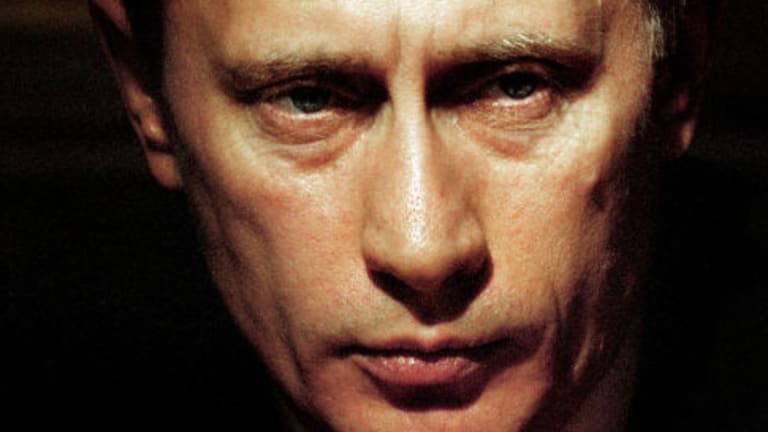
First Punch
Ever since childhood, the Russian leader’s experience was marked by the feelings of someone who possesses excess power and the ability to direct and persuade. He is not shy about dictating his orders to others and is ready to pressure them into complying. Speaking on a website dedicated to his biography, Putin said: “I come from a humble family, and I’ve lived this life for a very long time.”
Putin’s social background did not pave the way for him to reach the glories of the Kremlin. He was born on October 7, 1952 in a working class family living in one room at a shared housing estate in Leningrad, today’s Saint Petersburg.
Putin grew up in a compound in a popular residential area and often quarreled with bigger and stronger local boys.


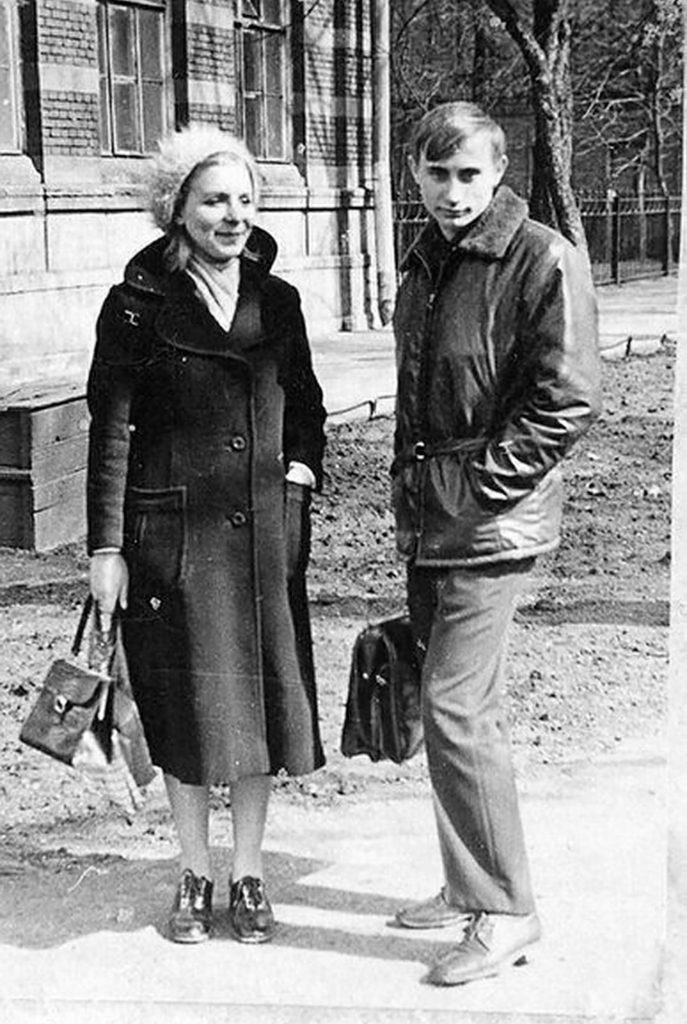

“Fifty years ago, the streets of Leningrad taught me one rule,” Putin said in 2015. “If you don’t want to get into a fight – you must strike first.” That is why, as Russia’s president, he uses the blunt language of street fighters to defend his military assault on, for example, Chechen separatists, vowing to crush them and chase them everywhere “even in the latrine.”
“One day in May 1959, or perhaps 1960, Putin in his early youth went out with his peers on an adventure without the knowledge of his father or mother,” Seven Lee Myers wrote in his book The New Tsar: The Rise and Reign of Vladimir Putin. “They took a train to a remote area in the city that they had not gone to before. They needed his permission, or else his punishment would be more severe.”
According to the writer, Putin was “an indifferent and quarrelsome student, rude and quick to get angry.” His former classmates described him as a “whirlwind,” because he did not stop spinning vicious circles in the classroom, in addition to being an element of sabotage at school. One day after a fight with someone, the students found a knife in his possession. This aggressive behavior, according to Myers, remained one of his main personality traits even during his later high school studies, which at one point required a reprimand by the Communist Party’s Cubs Committee. It even threatened to send him to a reformatory if he kept repeating such aggressive behavior.
The author quotes Vera Gorgović, his teacher at school until 4th grade. “She had to complain to his father, telling him: ‘Your son is smart, but he is neglectful, disorganized and quarrelsome.’ She told this to Vladimir Sr. at his house, describing him as ‘very cold and terrible.’ The father replied: ‘What can I do? Kill him or what?’”
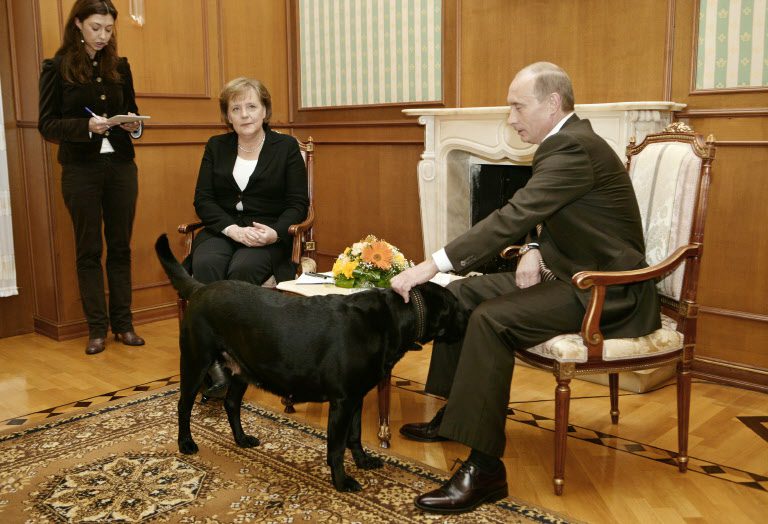

Putin’s Dog and The German Chancellor
Putin’s strategy revolves around the fact that most people are intimidated by hostility, ridicule, criticism and threats. Therefore he excels at intimidating, humiliating, and coercing others into respect and submission. Below are the details of only two cases that resonated in Russian and international media.
One of the most prominent stories is Putin taking advantage of German Chancellor Angela Merkel’s visit to the Kremlin by bringing his dog and a photographer to take some pictures. They show the lady from Berlin in a state of anxiety and fear, while Putin appears steadfast and indifferent. According to German newspaper Die Welt, the incident was apparently staged, as Putin knew Merkel was afraid of dogs having been bitten as a child.
In 2007, former French President Nicolas Sarkozy met with Putin on the sidelines of the G8 summit – which became the G7 after Russia was expelled for the occupation and annexation of the Crimea in 2014. The France 2 TV channel broadcast a report, which it indicated that Sarkozy blamed Putin for the killing of Chechens, the assassination of Russian journalist Anna Politkovskaia, and the violence against homosexuals in Russia.
Putin asked Sarkozy if he had finished his speech, before saying: “France is very small,” indicating its size with two fingers. “Russia is huge,” while spreading his arms as wide as possible. Then he added sharply: “If you continue to talk to me this way, I will crush you.”
Putin’s behavior with others, according to St. John’s University analysis, centers around his leadership presence. He is strong, reliable, directive and persuasive, as he seeks to dictate his orders to others and is ready to pressure them to comply at all cost.
Politically, individuals with this intimidating behavior often find a place for themselves in roles where hostile behavior is admired, providing an outlet for retaliatory hostility under the guise of social responsibility. This personality is characterized by a degree of daring and rudeness that reflects confidence and authority and often elicits admiration and compliance from others.
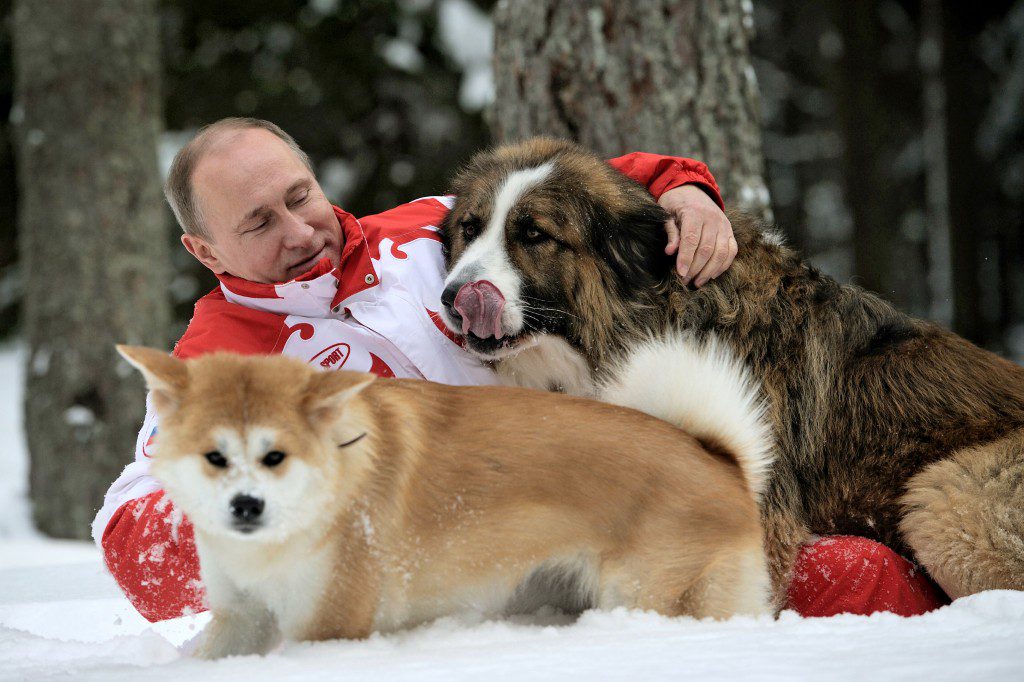

Language
Monica Maching, a German specialist in body language, considers that Putin’s way of walking shows a great deal of acting, which adds to the idea that he deliberately blows himself up to suggest strength. He has a slight shake in the left shoulder, which shows he would like to move more, yet is forced to persist in order for his image to suggest what he wants others to see and accept.
“It is no secret that Putin has sought, and succeeded, over the years in engineering his personal image in the eyes of the world,” she added. “However, no one knows much about his personal life, the world knows about him what he wants them to identify with.”
Putin has used body language and physical displays by publishing pictures of him bare-chested, riding horses and hunting tigers to gain admiration. This policy succeeded in fooling the minds of the Russian public. They saw in Putin’s physical strength evidence of his ability to protect Russia as a whole. His physical “investment” achieved its goals, as 48% of Russians declared in a poll that they would like Putin to remain president forever.
And this percentage only increased as Putin managed to keep his private life out of the limelight. No scandals were ever published about him. No one in his family wrote books about him. More importantly, his family appears successful. His youngest daughter, Katerina, holds a high position at Moscow University, and dances. His eldest daughter, Maria, is an endocrinologist.
Past and recent history tells us that if we search for “psychopathic” models and personalities with antisocial tendencies, the mental characteristics of such a person may be innate rather than acquired.
Putin, as well as Saddam Hussein and Muammar Gaddafi, are all neurotic figures who carry a number of behavioral traits and show abnormal emotional responses. They lack empathy, guilt or remorse, and are always manipulative and deceptive.
In this context, the most famous incident in history is the story of Agathocles (361 – 289 BC), ruler of Syracuse and one of the leaders in the Greek civil war, who crowned himself dictator in a unique way. Machiavelli wrote about him in his book The Prince and praised his skill.
Agathocles summoned his people and all representatives of the people’s councils, as if he was going to include them in a great matter of state affairs. Then, with a simple gesture of his hand, his bodyguards slaughtered all his rivals and he crowned himself as sole ruler. Agathocles justified the measure by saying “necessity: dictated him to do so in the interest of his people.
Is this not what Saddam and Qaddafi did? And what Putin is doing in Ukraine, Syria and Libya?
Saddam in his childhood was deprived of a mother and proper parental care, and suffered from poverty and deprivation. This, researchers believe, is what prompted him to humiliate the Iraqis and put the country and its resources in his grip to serve his illusions of greatness and superiority. He wanted to make himself an emperor, which made him spend billions, not only on absurd wars, but also luxurious palaces, thus seeking to compensate for the bitterness and humiliation he experienced in childhood.
Putin also built an empire of luxury properties and accumulated a fortune that has made him the 3rd richest politician in the world. His palace, which was exposed by opposition leader Alaxei Navalny, has an estimated value of one billion dollars. Then there is his gold-plated plane, and watches worth some $700,000. It shows an emperors’ lifestyle and makes him disconnected from reality.
According to a report called Life of Cadiz, Putin, who succeeded in bringing political and economic stability to Russia after the collapse of the Soviet Union, owns four yachts and 43 aircraft, one of which has a toilet worth $75,000. He also owns 20 luxury homes and 15 helicopters. And the list goes on. One aircraft worth noting is the Ilyushin Il-96, which features an $18 million bejeweled cabin, with leather from the Italian company that supplies Aston Martin. This in addition to his 2,300-acre home, which includes a movie theater, a bowling alley, and a presidential chapel. Putin’s lifestyle costs an estimated $2.4 billion annually.
Stanislav Belkovsky, a Russian political analyst and Putin critic, estimates that the Russian president had a net worth of $70 billion in 2012. The Russian president has stakes in Russian oil and gas companies such as Gazprom and Surgut Nayef Tejas. Anders Aslund, a Swedish economist and author of Russia’s Crony Capitalism: The Path from Market Economy to a Kleptocracy, puts an even higher estimate on Putin’s wealth. According to him, Putin has between $100 billion and $150 billion in assets. Aslund bases his calculations on the wealth of those close to Putin. According to his studies and research, Putin’s friends own between $500 million and $2 billion each on behalf of the Russian president. Der Kaiser’s Wealth Time magazine published a lengthy report talking about Putin’s secret wealth, mentioning some of the companies in which he owns a stake, as well as property and hidden assets.
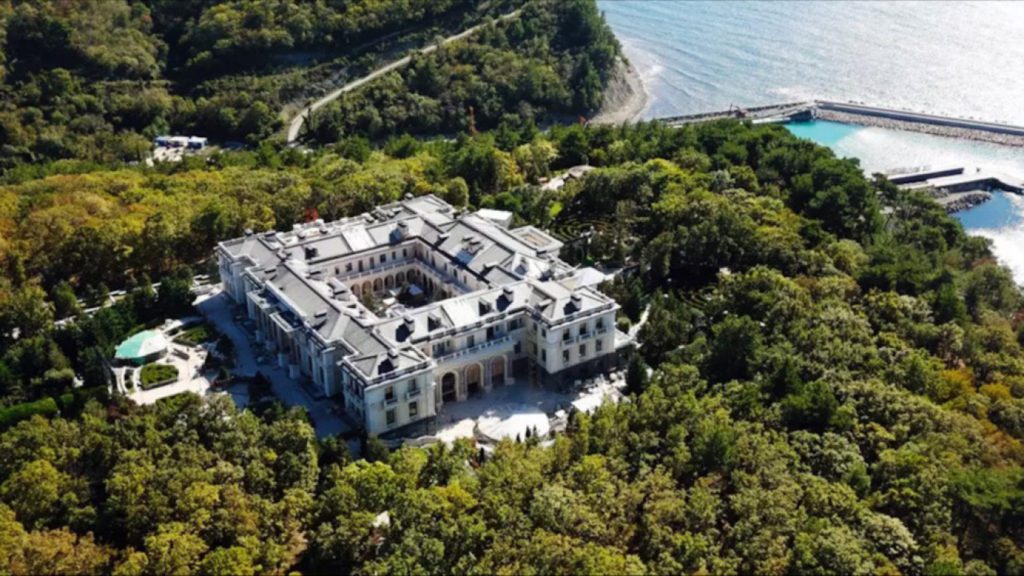

“They say that money equals power, and it seems that Putin has a lot of power, but how much does he own? He never says that,” Time wrote. “Knowing the net worth of Putin is a lofty goal for many secret agents and hackers around the world. But deciphering the fortune of the ‘former Russian intelligence agent,’ and its distribution is very complex, as it is most likely distributed among networks of holding companies, real estate, as well as other people’s bank accounts.”
Putin and his promotional apparatus are keen to show his masculinity, superiority and superhuman abilities in mountain climbing, long-distance swimming and judo. He himself has mentioned that in his childhood he was attracted to sambo martial arts and loved the spy character he saw in a movie when he was a high school student. French writer Bernard Chambaz issued a bold novel, which dealt directly with the character of Putin – without favoritism – as the new leader of the Russian nation, called: “Vladimir Vladimirovich.”
The writer described Putin as: “The president with eyes that resemble those of a ‘seal’ and who hides a state of anguish or sadness.” He describes how an ordinary citizen who was working as a literature teacher, had the misfortune to bear the same name as the great leader, who some European newspapers compare to Hitler or Saddam, and who in 2014 received a metaphorical slap from US President Obama when he included Putin’s Russia in the axis of global evil together with Islamic fundamentalists and Ebola. Meanwhile Svetlana Alexievich, the Belarusian novelist, born and raised in Ukraine, who won the Nobel Prize in 2015, has ridiculed the Russian president for years. She describes him sarcastically as “the person who embodies the absence of Russian glory.”
She had criticized his “caricature” appearance, bare-chested, holding a gun, always forgetting his promises of reform, and insisting on fighting homosexuals, as well as criticizing his ferocious campaign against the musical group Pussy Riot. Putin became the laughingstock of Russian writers and intellectuals when he put his hands on the Russian Orthodox Church and made its patron, Patriarch Kirill, his puppet. Especially after the latter gave Putin his blessing in September 2015 for fighting what was then called the “holy war” in Syria “in defense of the Christians of the East.”
Read Also:

